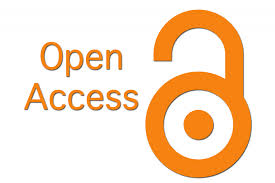Review of A Conceptual Framework for Designing and Building Fisheries Co-management
Abstract
There has been growing consensus in fisheries management literature that fisheries can only be managed successfully with the power-sharing and partnership of fishers. The objective of this review is to focus on examining the current global literature on fisheries co-management. The review findings lead to the conclusion that various forms of fisheries co-management exist in many countries and have different organizational forms in different fishery settings. The review has identified six principles that should be applied in designing proper fisheries co-management: subsidiarity, conflict and power, property rights, representation and knowledge, community institution building and management functions.
Keywords
Full Text:
PDFReferences
Arrow, K. (1974). The Limits of Organization. New York: W.W. Norton and Company.
Dahl, C. (1988). Traditional marine Tenure: a Basis for Artisanal Fisheries Management. Marine Policy, 12, 40-48.
Dale, C. (2011). Investigating Cowichan River collaborative salmon management institutions: The Cowichan harvest roundtable and the traditional Cowichan fish weir. https://core.ac.uk/download/226153794.pdf
Hanna, S. (2003). The Economic of Co-management. In D.C. Wilson, J.R. Nielsen, and P. Degnbol (Eds). The fisheries co-management experience: Accomplishment, challenges and prospects. London: Kluwer Academic Publisher.
Hara, M. and Nielsen, J.R. (2003). Experiences With Fisheries Co-management in Africa. In D.C. Wilson, J.R. Nielsen, and P. Degnbol (Eds). The fisheries co-management experience: Accomplishment, challenges and prospects. London: Kluwer Academic Publisher.
Jentoft, S. (1989). Fisheries co-management: Delegating government responsibility to fishermen's organisations. Marine Policy, 13(2), 137–154.
Jentoft, S. (2000). The Community: a Missing Link of Fisheries Management? Marine Policy, 24, 53-59.
Jentoft, S. & McCay, B. (1995). User participation in fisheries management: Lessons drawn from international experiences. Marine Policy, 19(3), 227-246.
Jentoft, S and McCay, B. (2003). The Place of Civil Society in Fisheries Management: a Research Agenda for Fisheries Co-management. In D.C. Wilson, J.R. Nielsen, and P. Degnbol (Eds). The fisheries co-management experience: Accomplishment, challenges and prospects. London: Kluwer Academic Publisher.
Kuperan, N.M.R.A.K., and Pomeroy, R.S (1998). Transaction Costs and Fisheries Co-management. Marine Resource Economics, 13103-114.
Loucks, L. Wilson, J.A., & Ginter, J.J.C., (2003). Experiences with Fisheries Co-Management in North America. In D.C. Wilson, J.R. Nielsen, and P. Degnbol (Eds). The fisheries co-management experience: Accomplishment, challenges and prospects. London: Kluwer Academic Publisher.
Matthews, R.C.O. (1986). The Economics of Institutions and the Sources of Growth. Economic Journal, 96 (December), 903-910
McCay, B. J. & Jentoft, S. (1996). From the bottom up: Participatory issues in fisheries management. Society and Natural Resources, 9, 237-250.
Pateman, C. (1970). Participation and Democratic Theory. New York: Cambridge University Press.
Pinkerton, E.W. (1989. Attaining Better Fisheries Management through Co-management: Prospects, Problem, and Propositions. In E.W. Pinkerton (Ed.). Cooperative Management of Local Fisheries: New Directions for Improved Management and Community Development (pp. 3-33). Vancouver, B.C: University of British Columbia Press.
Pinkerton, E (2003). Toward Specificity In Complexity: Understanding co-management from a social science perspective. In D.C. Wilson, J.R. Nielsen, and P. Degnbol (Eds). The fisheries co-management experience: Accomplishment, challenges and prospects. London: Kluwer Academic Publisher.
Pomeroy, R. S. & F. Berkes. (1997). Two to tango: The role of government in fisheries co-management. Marine Policy, 21(5), 465–480.
Pomeroy, R.S. (2003). The Government as a Partner in Co-management. In D.C. Wilson, J.R. Nielsen, and P. Degnbol (Eds). The fisheries co-management experience: Accomplishment, challenges and prospects. London: Kluwer Academic Publisher.
Pomeroy, R.S. & Viswanathan, (2003). Experiences With Fisheries Co-management in Southeast Asia and Bangladesh. In D.C. Wilson, J.R. Nielsen, and P. Degnbol (Eds). The fisheries co-management experience: Accomplishment, challenges and prospects. London: Kluwer Academic Publisher.
Sen, S., & Rakjaer-Nielsen, J. (1996). Fisheries co-management A comparative analysis. Marine Policy, 20, 405-418.
Varjopuro, R., and Salmi, P. (2003). Co-management and Recreational Fishing. In D.C. Wilson, J.R. Nielsen, and P. Degnbol (Eds). The fisheries co-management experience: Accomplishment, challenges and prospects. London: Kluwer Academic Publisher.
Wilson, E. (1993). The Diversity of Live. Cambridge: Harvard University Press.
Wilson, D.C. (2003). The Community Development Tradition and Fisheries Co-management. In D.C. Wilson, J.R. Nielsen, and P. Degnbol (Eds). The fisheries co-management experience: Accomplishment, challenges and prospects. London: Kluwer Academic Publisher.
Ziebe, R. (2015). Fisheries in the Waza Logone floodplain : An analysis of the status of the fisheries sector and mitigation of conflicts within the sector in North Cameroon. https://core.ac.uk/download/388663273.pdf
DOI: http://dx.doi.org/10.15578/ifrj.30.2.2024.23-37

Indonesian Fisheries Research Journal is licensed under a Creative Commons Attribution-ShareAlike 4.0 International License.
View My Stats
p-ISSN 0853-8980
e-ISSN 2502-6569




